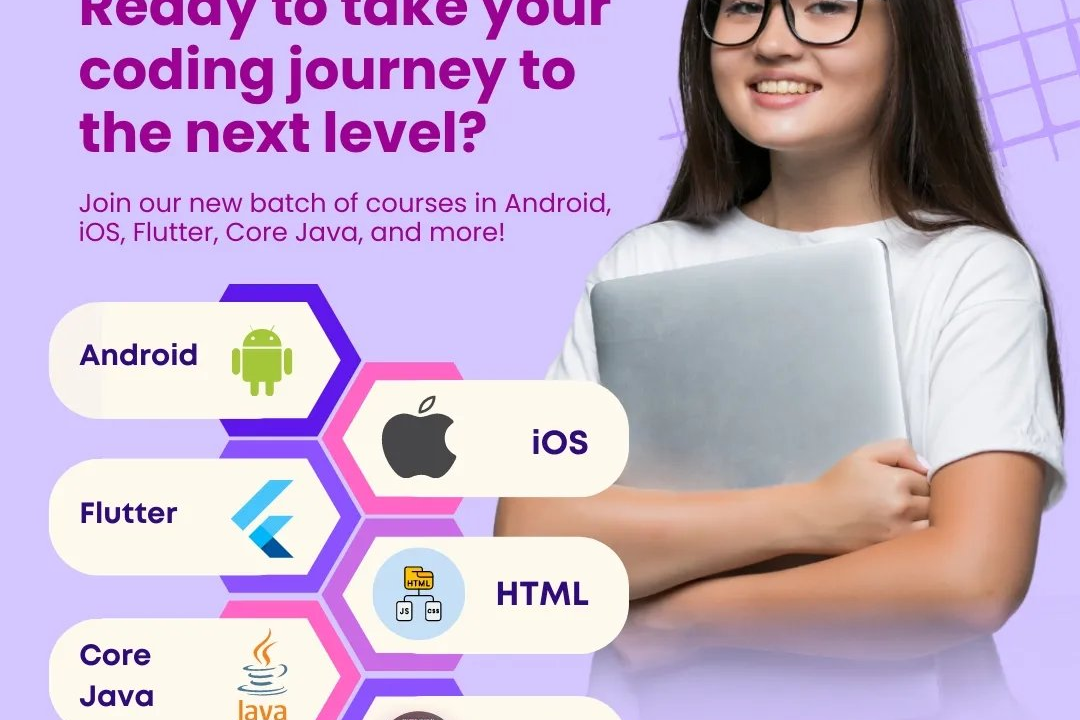Salesforce Developer Course
Mastering Salesforce Development: From Fundamentals to Real-World Projects
Salesforce Developer Course
The Salesforce Developer Course offered by JustAcademy provides a comprehensive foundation in developing applications on the Salesforce platform, a leading cloud-based customer relationship management (CRM) solution. With the growing demand for Salesforce professionals in the global job market, this course equips learners with the essential skills to design, build, and implement powerful business applications using Salesforce tools and features. Through hands-on projects and real-world scenarios, participants gain practical experience that enhances their problem-solving abilities and boosts their employability, making it an invaluable asset for aspiring developers and tech enthusiasts looking to advance their careers in the fast-evolving field of CRM technology.
To Download Our Brochure: https://www.justacademy.co/download-brochure-for-free
Message us for more information: +91 9987184296
The Salesforce Developer Course offered by JustAcademy provides a comprehensive foundation in developing applications on the Salesforce platform, a leading cloud based customer relationship management (CRM) solution. With the growing demand for Salesforce professionals in the global job market, this course equips learners with the essential skills to design, build, and implement powerful business applications using Salesforce tools and features. Through hands on projects and real world scenarios, participants gain practical experience that enhances their problem solving abilities and boosts their employability, making it an invaluable asset for aspiring developers and tech enthusiasts looking to advance their careers in the fast evolving field of CRM technology.
Course Overview
The Salesforce Developer Course at JustAcademy offers an in-depth exploration of Salesforce application development, covering essential topics such as Apex programming, Visualforce, Lightning components, and Salesforce architecture. The course combines theoretical knowledge with practical, real-time projects, enabling learners to design, develop, and deploy applications tailored to business needs. Participants will also gain insights into best practices for Salesforce development, enhancing their ability to troubleshoot and optimize solutions within the Salesforce ecosystem. By the end of the course, students will be well-equipped to pursue a career as certified Salesforce developers, ready to meet the demands of the industry.
Course Description
The Salesforce Developer Course at JustAcademy is designed to equip aspiring developers with the skills needed to build and customize applications within the Salesforce platform. Throughout this course, participants will dive into essential topics such as Apex programming, Visualforce, and Lightning components, alongside gaining hands-on experience with real-time projects that simulate real-world business scenarios. This comprehensive curriculum not only covers the technical aspects of Salesforce development but also emphasizes best practices and problem-solving strategies. By the end of the course, learners will have a robust understanding of Salesforce architecture and be well-prepared to pursue certification and a successful career in Salesforce development.
Key Features
1 - Comprehensive Tool Coverage: Provides hands-on training with a range of industry-standard testing tools, including Selenium, JIRA, LoadRunner, and TestRail.
2) Practical Exercises: Features real-world exercises and case studies to apply tools in various testing scenarios.
3) Interactive Learning: Includes interactive sessions with industry experts for personalized feedback and guidance.
4) Detailed Tutorials: Offers extensive tutorials and documentation on tool functionalities and best practices.
5) Advanced Techniques: Covers both fundamental and advanced techniques for using testing tools effectively.
6) Data Visualization: Integrates tools for visualizing test metrics and results, enhancing data interpretation and decision-making.
7) Tool Integration: Teaches how to integrate testing tools into the software development lifecycle for streamlined workflows.
8) Project-Based Learning: Focuses on project-based learning to build practical skills and create a portfolio of completed tasks.
9) Career Support: Provides resources and support for applying learned skills to real-world job scenarios, including resume building and interview preparation.
10) Up-to-Date Content: Ensures that course materials reflect the latest industry standards and tool updates.
Benefits of taking our course
Functional Tools
1 - Salesforce Platform: The core of the Salesforce Developer Course is built around the Salesforce Platform itself. This robust and cloud based platform provides various tools and resources that developers use to build applications and manage customer relationships. Students gain hands on experience navigating the platform, understanding its architecture, and utilizing its features for developing solutions tailored to business needs. This experience is essential for mastering the functionalities of Salesforce, such as customer data management, reporting, and automation.
2) Apex: Apex is Salesforce's proprietary programming language designed to execute global business logic. In the course, students learn the syntax and structure of Apex, enabling them to create custom business logic through triggers and classes. Practical exercises focus on writing complex queries, handling asynchronous processing, and integrating with external systems. Mastering Apex is critical for building applications that meet specific business requirements, making it a key part of the curriculum.
3) Visualforce: Visualforce is a framework for creating custom user interfaces in Salesforce applications. The course provides in depth training on using Visualforce to design user friendly and interactive experiences. Students learn to build dynamic web pages using Visualforce components and integrate them with Apex controllers. This skill is vital for developers wanting to customize the Salesforce interface to meet user needs, enhancing usability and overall functionality.
4) Lightning Components: Lightning components allow developers to create responsive applications for desktop and mobile devices. The course covers the Lightning Component framework, guiding students through the process of building reusable components. Participants learn about event driven programming, UI design best practices, and how to leverage Lightning for enhanced user experiences. Mastery of Lightning components is essential for modern Salesforce development, as it aligns with contemporary design paradigms.
5) Salesforce CLI (Command Line Interface): The Salesforce CLI is a powerful tool that streamlines development workflows through automation and command line operations. The course instructs students on how to use the CLI for various tasks, including managing files, deploying changes, and executing Salesforce commands. Understanding the CLI enhances efficiency and productivity for developers, allowing them to focus on coding and implementing solutions rather than getting bogged down by manual processes.
6) Git and Version Control: Version control is essential in collaborative development environments, and the course introduces Git as a primary tool for managing code changes. Students learn how to use Git for branching, merging, and tracking code history. This knowledge is crucial for working in teams, enabling seamless collaboration on projects while ensuring code integrity. Teaching students version control principles empowers them to handle source code management effectively, a vital skill for professional developers.
7) Salesforce Trailhead: Salesforce Trailhead is an interactive learning platform that offers numerous modules and hands on projects related to Salesforce development. The course encourages students to utilize Trailhead alongside their formal training, providing access to additional resources, certifications, and learning paths. This integration fosters a culture of continuous learning and allows students to stay updated with the latest Salesforce features and best practices, further enhancing their skills in a rapidly evolving technology landscape.
8) Understanding Salesforce Data Model: A foundational aspect of Salesforce development is comprehending the data model, which outlines how data is structured and related within the platform. The course delves into objects, fields, relationships, and schemas. Students learn to create custom objects and manage data effectively, ensuring that they can build solutions that interact seamlessly with existing data structures. Mastery of the data model is critical for any developer looking to create sophisticated Salesforce applications.
9) Integration Techniques: Modern applications often need to interact with external systems. The course covers various integration techniques, including REST and SOAP APIs, and how to connect Salesforce with third party services. Students gain practical experience in designing and implementing integrations, allowing them to build robust solutions that leverage external data and functionality. This skill set is crucial for developers tasked with creating interconnected ecosystems.
10) Security and Access Control: Understanding Salesforce security features is paramount for any developer. The course addresses user permissions, profiles, roles, and sharing rules, teaching students how to implement security measures that protect data integrity while enabling user functionality. This knowledge ensures that developers can design applications that adhere to best security practices, a critical requirement for any organization handling sensitive information.
11 - Mobile Development with Salesforce: With the rise of mobile applications, the course includes training on developing mobile friendly solutions using Salesforce mobile features. Students learn to create responsive designs, optimize performance for mobile devices, and utilize Salesforce's mobile SDK. Becoming proficient in mobile development expands a developer's toolkit and prepares them for the demands of a mobile first business environment.
12) Test Driven Development (TDD): The course emphasizes the importance of Test Driven Development, where tests are written before code is developed. Students gain an understanding of writing unit tests in Apex and the significance of maintaining code quality and reliability. TDD practices foster a disciplined approach to development, reducing bugs and enhancing overall application performance.
13) Deployment Strategies: Effective deployment strategies are essential for transitioning solutions from a development environment to production. The course explores various deployment methods, including Change Sets, the Salesforce CLI, and third party tools like Gearset. Students learn how to plan and execute deployments confidently, ensuring successful transitions while minimizing disruption to users.
14) Real time Project Work: As part of the course, students engage in real time project work that simulates actual development experiences. Working on projects from conception to deployment helps solidify their skills and prepares them for real world scenarios. This hands on experience is invaluable, allowing learners to apply theoretical knowledge and build a portfolio that showcases their abilities to potential employers.
15) Collaboration and Agile Methodologies: Understanding how to work within a team is crucial in software development. The course introduces students to Agile methodologies, Scrum, and Kanban, emphasizing iterative development and continual feedback cycles. By participating in group projects, students experience collaboration dynamics, learn to manage sprints, and adopt Agile practices that enhance productivity and responsiveness in development environments.
16) Salesforce AppExchange: The Salesforce AppExchange is a marketplace for Salesforce applications and integrations. The curriculum teaches students about the AppExchange ecosystem, how to publish their applications, and the importance of leveraging existing solutions to enhance their projects. Knowledge of the AppExchange enables developers to stay current with innovative tools and expand their capabilities through existing resources.
17) Community Engagement and Networking: The course encourages students to engage with the broader Salesforce community, join user groups, attend events, and participate in forums. Networking with other Salesforce professionals and learning from their experiences enriches the educational journey and provides opportunities for collaboration and mentorship. Building connections within the community can open doors to job opportunities and professional growth.
18) Certification Preparation: As part of the course, students receive guidance on preparing for Salesforce certifications, which can significantly enhance their employability. The course outlines the certification pathways, offers tips for studying, and provides practice exams. Being well prepared for certifications not only validates a developer’s skills but also distinguishes them in a competitive job market.
Each of these points contributes to creating a well rounded Salesforce Developer Course that equips learners with the essential skills to thrive in the fast paced world of software development and Salesforce implementations.
Browse our course links : https://www.justacademy.co/all-courses
To Join our FREE DEMO Session: Click Here
This information is sourced from JustAcademy
Contact Info:
Roshan Chaturvedi
Message us on Whatsapp: +91 9987184296
Email id: info@justacademy.co
How to Create Immutable Class in Java
Top 10 Software Training Institutes In Bangalore












